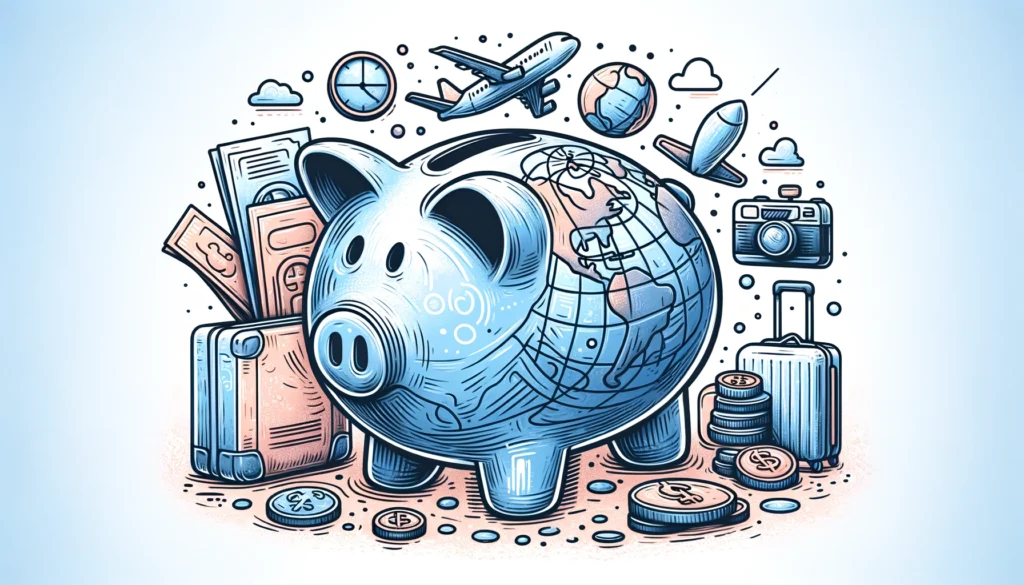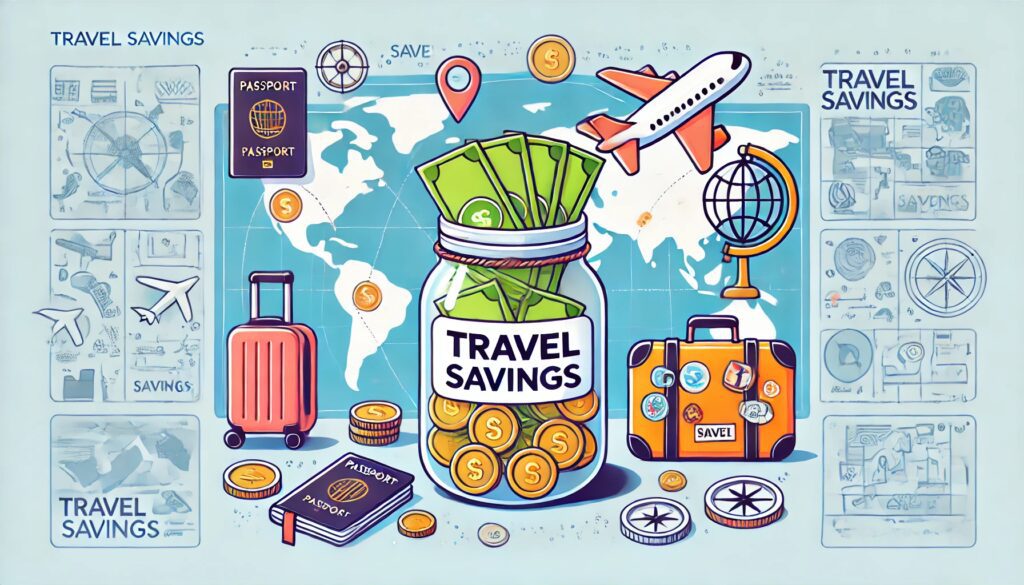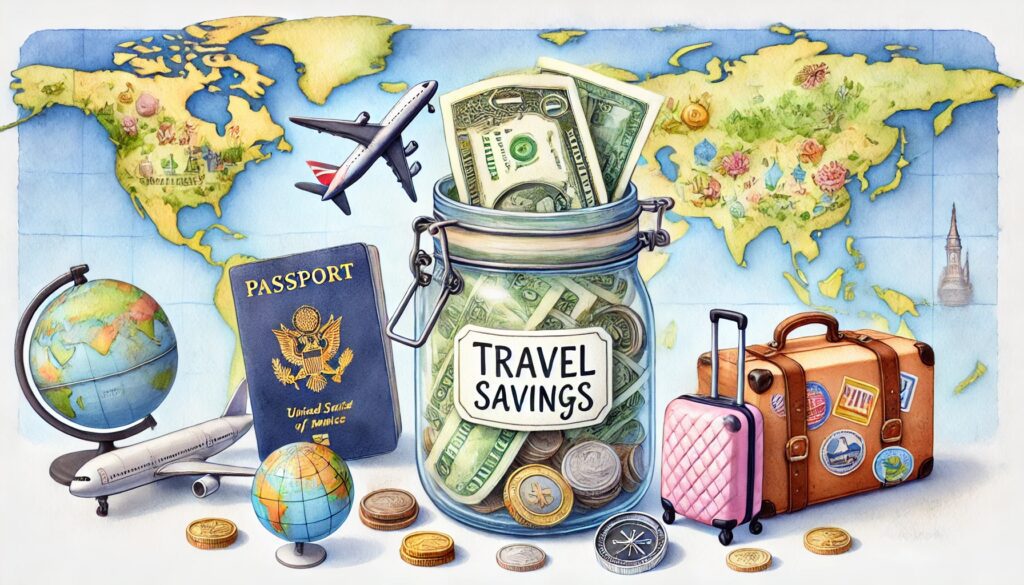
Unlocking Travel Savings: AI Revolutionizes How You Find the Best Prices and Deals
In today’s fast-paced world, optimizing travel pricing and deals can significantly impact a company’s bottom line. Thanks to advancements in Artificial Intelligence (AI), businesses can now dynamically adjust prices, analyze market trends, and offer personalized deals, leading to improved revenue and customer satisfaction. This article will explore how AI is revolutionizing travel pricing, its benefits, and how businesses can implement these strategies.
The Power of AI in Travel Pricing
AI technology is transforming how travel companies manage their pricing strategies. By automating processes, reducing errors, and providing real-time insights, AI allows companies to optimize their pricing and stay competitive in a dynamic market.
Dynamic Pricing Strategies
Real-Time Adjustments: AI algorithms analyze a myriad of factors such as demand, competition, booking trends, and even local events to adjust prices dynamically in real-time. This ensures that prices are competitive and reflect current market conditions.
Predictive Analytics: By examining historical data and current trends, AI can predict future price fluctuations, allowing travelers to book at the most advantageous times.
AI and Dynamic Pricing in Airlines
Airlines are at the forefront of using AI to implement dynamic pricing strategies. AI models predict market trends and adjust prices accordingly, ensuring competitive pricing and optimized revenue. For example, AI platforms like Fetcherr use reinforcement learning to determine the most profitable pricing strategies under varying market conditions (PYMNTS.com). Similarly, EasyJet utilizes AI algorithms to predict customer demand and optimize seat pricing, leading to increased revenue and customer satisfaction (nexocode).
AI in Hotel Pricing
Hotels benefit significantly from AI-driven dynamic pricing. By analyzing factors such as occupancy rates, local events, and historical data, AI helps hotels adjust room rates to reflect current market demand, optimizing occupancy and revenue. Marriott, for instance, has successfully increased its occupancy rates and revenue through AI-driven dynamic pricing strategies (McKinsey & Company).
Personalized Recommendations
Customer Preferences: AI systems use data from past bookings, searches, and preferences to tailor travel recommendations. This can include suggesting destinations, accommodations, and activities that align with a traveler’s interests and budget. Behavioral Analysis: Machine learning models track user behavior on travel platforms to refine recommendations, making the booking process more intuitive and efficient.
Deal Alerts and Notifications
Price Drop Alerts: AI-powered tools can monitor specific flights, hotels, or travel packages and notify users when prices drop, ensuring they never miss a deal. Special Offers: Based on user profiles and search histories, AI can highlight exclusive offers and discounts that are most relevant to the user.
Chatbots and Virtual Assistants
24/7 Assistance: AI chatbots provide round-the-clock customer service, helping with booking modifications, cancellations, and providing travel information. Booking Assistance: Virtual assistants can guide users through the booking process, answer queries, and even book trips on behalf of the user, making travel planning more seamless.
Enhanced Search and Booking Platforms
Natural Language Processing (NLP): AI-driven search engines understand natural language queries, allowing users to search for travel options in a more conversational and user-friendly manner. Visual Search: AI can process images to help users find destinations, landmarks, or accommodations similar to the ones in the photos they upload.
AI in Car Rentals and Tours
Car rental companies and tour operators use AI-driven dynamic pricing to stay competitive. By analyzing booking patterns, seasonal demand, and competitor pricing, AI sets competitive prices that attract more customers while maximizing profit.
Machine Learning and Data Integration
Machine learning algorithms are at the core of AI-driven pricing strategies. These algorithms analyze vast datasets to identify patterns and predict optimal pricing levels. Data is the backbone of AI-driven pricing strategies. Collecting and analyzing data from various sources, such as customer behavior, market trends, and competitor prices, is essential for accurate pricing models.
Save Big on Your Next Trip: Proven Travel Savings Tips
Discover how to make your travel budget go further with these expert tips!

The Power of Planning Ahead
Booking flights and accommodations well in advance can lead to significant travel savings. Airlines and hotels often offer discounts for early reservations, allowing you to secure lower rates.
Flexible Travel Dates
Traveling during off-peak seasons or mid-week can save you a lot of money. Flexible travel dates help you take advantage of lower prices when demand is lower.
Use Price Comparison Tools
Websites like Kayak, Skyscanner, and Google Flights allow you to compare prices across multiple airlines. These tools can help you find the best deals and save money on airfare.
Leverage Loyalty Programs
Sign up for airline and hotel loyalty programs. These programs offer points and rewards that can be redeemed for free flights, room upgrades, and other perks.
Take Advantage of Last-Minute Deals
If you’re flexible with your destination and travel dates, last-minute deals can provide substantial savings. Websites like LastMinute.com specialize in offering discounted rates for spontaneous travelers.
Optimize Accommodation Choices
Consider alternatives to hotels, such as Airbnb or vacation rentals, which can be more cost-effective, especially for longer stays. Hostels and budget hotels are also great options for travelers on a tight budget.
Bundle Your Travel
Booking flights, hotels, and car rentals together as a package can often result in significant savings. Many travel websites offer discounts when you bundle your bookings.
Use Credit Card Travel Rewards
Certain credit cards offer travel rewards that can be used to pay for flights, hotels, and other travel expenses. Research and choose a card that offers the best benefits for your travel needs.
Cook Your Own Meals
Eating out can be expensive, so consider accommodations with kitchen facilities. Shopping at local markets and preparing your own meals can help you save on food costs while traveling.
Utilize Public Transportation
Using buses, trains, and subways instead of taxis or rental cars can significantly reduce your transportation costs. Research local public transport options before you go.
Explore Free Attractions
Many destinations offer a variety of free attractions, such as museums, parks, and historical sites. Plan your itinerary around these free activities to maximize your travel savings.
Monitor Exchange Rates
Keep an eye on currency exchange rates and convert your money when the rates are favorable. Using credit cards with no foreign transaction fees can also help you save on exchange costs.
Stay Connected with Wi-Fi
Roaming charges can add up quickly, so use free Wi-Fi whenever possible. Many cafes, hotels, and public spaces offer free Wi-Fi, allowing you to stay connected without incurring extra costs.
Pack Smart
Avoid extra baggage fees by packing light and ensuring your luggage meets airline requirements. Research the baggage policies of the airlines you’re flying with to prevent unexpected charges.
Travel Insurance
While travel insurance is an additional cost, it can save you a lot of money in case of emergencies, cancellations, or lost luggage. It’s a wise investment for peace of mind and financial protection.
Join Travel Forums and Communities
Online travel communities can provide valuable insights and travel savings tips. Websites like TripAdvisor, Reddit, and Lonely Planet’s Thorn Tree Forum are great places to get advice from seasoned travelers.
Use Discount Sites and Apps
Websites like Groupon and apps like Hopper offer exclusive travel deals and discounts. These platforms can help you find bargains on everything from flights to local activities.
Book with Budget Airlines
Consider flying with budget airlines for shorter trips. They often offer lower fares than major carriers, though be aware of additional fees for things like luggage and seat selection.
Sign Up for Fare Alerts
Set up fare alerts on travel websites to get notified when prices drop for your desired flights. This allows you to book at the lowest possible rates.
Take Advantage of Student and Senior Discounts
If you’re a student or senior, take advantage of discounts offered specifically for you. Many airlines, hotels, and attractions offer reduced rates for students and older people.

Case Studies and Success Stories
Dynamic Pricing
Case Study: Hopper Hopper, a travel booking app, uses AI-driven dynamic pricing to analyze billions of flight prices daily. By predicting the best times to buy tickets, Hopper saves users an average of $50 per flight. This method combines historical data and current trends to forecast price drops and hikes, providing notifications to users when it’s the best time to book.
Personalized Recommendations
Case Study: Expedia Expedia leverages machine learning to offer personalized recommendations based on user preferences and past behavior. By analyzing search history, booking patterns, and user reviews, Expedia tailors its suggestions to each traveler’s unique needs, resulting in higher customer satisfaction and increased bookings.
Deal Alerts and Notifications
Case Study: Skyscanner Skyscanner’s price alert feature helps users monitor flight prices. Once a user sets an alert for a specific route, Skyscanner continuously tracks fares and sends notifications when prices drop, ensuring travelers book flights at the lowest possible cost.
Chatbots and Virtual Assistants
Case Study: KLM Royal Dutch Airlines KLM’s AI-powered chatbot, BlueBot, offers 24/7 customer service and booking assistance. BlueBot can handle a wide range of queries, from flight information to seat selection, improving efficiency and providing immediate support to travelers.
Enhanced Search and Booking Platforms
Case Study: Google Travel Google Travel utilizes natural language processing (NLP) to understand and process complex search queries. This allows users to find travel options quickly and easily, whether they’re looking for specific destinations, activities, or accommodations.
Fraud Detection and Prevention
Case Study: Airbnb Airbnb employs AI to detect and prevent fraudulent activities. By analyzing transaction patterns and user behavior, Airbnb’s system can identify anomalies and take preventive measures, ensuring secure bookings and protecting users from fraud.
Operational Efficiency for Providers
Case Study: Delta Airlines Delta Airlines uses AI for inventory management and predictive maintenance. By optimizing flight schedules and maintenance routines, Delta reduces operational costs and enhances service reliability, which translates to better deals and experiences for travelers.
Smart Travel Planning
Case Study: Rome2Rio Rome2Rio’s AI-powered platform helps users plan multi-modal travel routes, combining flights, trains, buses, and ferries. This comprehensive approach ensures travelers can find the most efficient and cost-effective routes to their destinations.
Social Media and Sentiment Analysis
Case Study: Hilton Hotels Hilton uses AI to analyze social media trends and customer sentiment. By monitoring reviews and feedback, Hilton identifies areas for improvement and tailors its marketing strategies to meet guest expectations, enhancing overall customer satisfaction.
The Future of AI in Travel Pricing
As AI technology continues to evolve, its applications in travel pricing will become more sophisticated. Future trends include advanced predictive analytics, enhanced personalization, and broader adoption of AI across the travel industry.
Conclusion
By following these tips and strategies, you can significantly reduce your travel expenses and enjoy your trips without breaking the bank.
Happy travels!